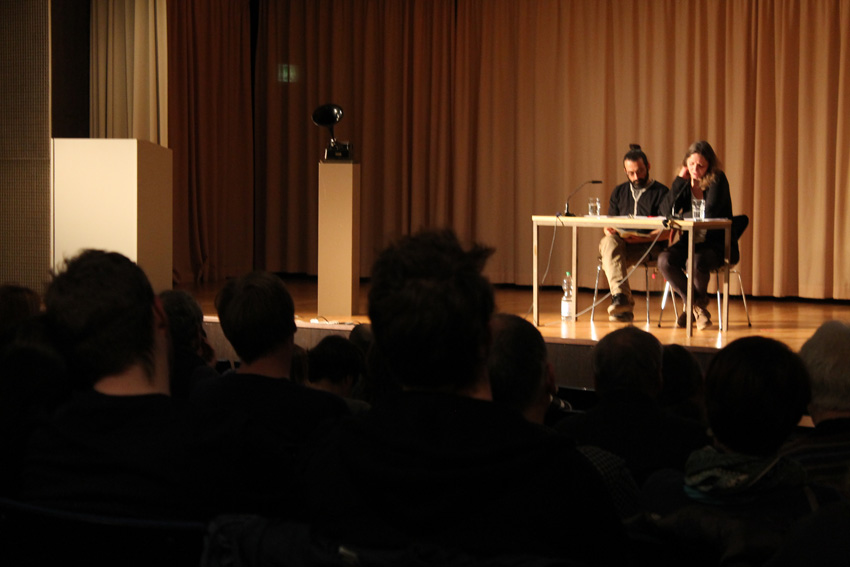Last Sunday, writer Basque Mikel P. Ansa visited Berlin at the invitation of the local Basque club, to read extracts from his novel “Su zelaiak” (fire fields) at the local Museum of Ethnology. The book is based on the experience of Basque solders in the trenches during World War I, and reading the passages included inserts of recorded songs by Basque prisoners of war during this conflict.
Berlin, Germany. The Museum of Ethnology in Berlin was the site of a reading that took place by author Mikel P. Ansa of his novel, Su zelaiak, set during the First World War. The reading took place in the museum’s theater, organized by the Gernika Basque club in the German capital city.
The event was attended by nearly 50 people, as club president, Ainhoa Añorga told EuskalKultura.com. In addition to the Basque audience, there were also many Germans in attendance that were provided simultaneous translation into German.
After the reading, Mikel P. Ansa participated in an animated colloquium on the topic that the audience fully participated in. The conversation didn’t end there, but continued later at a nearby restaurant, where the author and club members met to continue the discussion.
Organizers in the area of musicology at the Ethnology Museum in Berlin were very satisfied with the result of this first activity organized there by the Basque club and communicated their interest in organizing new activities together, and that the museum’s doors are always open to the club and its members.
The Basques in the First World War
The novel, Su zelaiak won the Euskadi Literature Prize in 2015, and is based on letters and documentation from Basques called to the front lines during the First World War, the majority of them from Iparralde, to compose a fresco in this bloody battle. The work focusses on the 6,000 Basques that died in the Great War and in other thousands who were injured. The author uses both fictional and real events to narrate the cruelties and the atrocities that occurred during the first great war of the 20th century.
-To purchase the book, click here.






 Send to a friend
Send to a friend Add comment
Add comment








